Living in the colder parts of the world imposes a challenge for dog lovers. Most dog breeds cannot sustain extreme cold temperatures. That can be a little discouraging for canine lovers eyeing a particular dog variety to have company when the temperature is below zero degrees.
If you live in some mountainous regions and freezing temperatures and snow are common deterrents. Therefore, look for a furry friend who can survive such harsh winters.
There are dog breeds that can be wonderful companions, even if it snows a lot at your place.
Characteristic of cold weather dog breed
Some dogs come naturally equipped to deal with harsh winters as bred in cold countries. The cold-weather dog breeds have thick double-layered coats that act as natural insulators and protect them from freezing temperatures. Their cozy undercoats keep their body warm, and the outer layer repels the wind and moisture, thus keeping them dry and comfortable even in icy conditions.
Another noticeable characteristic of these winter dog breeds is their sturdy feature, which helps them to withstand rough cold weather. With their robust and muscular legs, they face no difficulty traveling long distances in icy rugged terrains. Dogs that can sustain cold weather have small tails and short ears that prevent them from frostbites, which is common in cold regions.
These dogs possess remarkable energy and endurance and are much more active even when the mercury dips low.
Here is a list of the 21 best dog breeds for cold weather:
Alaskan Malamute
It is a magnificent and powerful breed and descendant of the Artic wolves. Alaskan Malamutes can withstand a temperature as low as -20 degrees Fahrenheit. A thick and waterproof double coat protects them from the cold. In the past, these Alaskan malamutes became part of many expeditions in the Artic regions helping people to carry heavy freight sleds.
Their expressive almond-shaped eyes are always brown.
Looking at their eyes, you can discern how intelligent and determined these dogs are. Beyond their captivating appearance, these dogs are well-known for their loyalty and affectionate nature. They can form strong bonds with human beings and love spending time with family members.
Alaskan Malamutes have become a family dog. Remember their sled dog heritage. These dogs have an innate need for regular exercise and mental stimulation.
Siberian Husky
The Siberian Huskies are no doubt the most cold-tolerant dog breed. This dog breed is the classic example of snow dogs with their enormous endurance power and striking appearance. These dogs were initially bred in North Eastern Siberia by the Chukchi people for their ability to withstand the freezing Artic temperature and to assist them with transportation and sledding. You will find very few Huskies working as sled dogs. With their generous and friendly disposition, they have now become family pets.
Siberian Huskies are medium-sized dogs with attractive eyes that are blue, brown, or sometimes even one of each color. Similar to the other snow dog breeds, they are also double-coated. Their undercoat is dense with thick fur. It keeps their bodies warm in cold weather. The intelligence and independent nature of the dog sometimes impose challenges in training them. They require persistent and patient guidance.
Before bringing a Siberian Husky home, remember they are brimming with energy and an enormous desire to explore. They need regular exercise and mental stimulation.
Samoyed
The Samoyeds are adored for the beautiful snow-white double coat. This dog breed is friendly and can be an invaluable companion. These dogs form strong bonds with family because of their playful and affectionate nature.
Long back, they served as companions to the nomadic Samoyedic people who kept them for herding reindeer and pulling sleds through the rough, icy lands of the Arctic.
They are intelligent and willing to learn, so training new activities to these dog variants is not challenging. Their thick fluffy coat needs regular grooming to maintain its lustrous appearance.
Bernese Mountain Dog
Bernese Mountain Dogs originated in the Swiss Alps and are renowned for their striking appearance and gentle nature. The dogs with soulful eyes and tri-colored black, white, and rust-colored coats are a sight to behold.
They are loyal, intelligent, affectionate, and excellent family pets. The Bernese mountain dogs are of patient and friendly nature. They are protective of their loved ones. Because of this nature, they can be effective watchdogs. They used to work as farm dogs, enjoy physical activities, and thrive best in outdoor environments. With their loving and majestic presence, Bernese Mountain Dogs have captured the hearts of many dog lovers.
Newfoundland
Newfoundland called Newfies are majestic giant breeds that are strong, intelligent, and have sweet temperaments. These massive canines are from Newfoundland of Canada. They were bred as working dogs for fishermen. Newfies help the fishermen drag fishing nets and rescue a person drowning, and they have exceptional swimming abilities.
They have water-resistant double coats and can be of different colors. Despite their enormous size, they are gentle and patient and can be a good family companion. They are called “nanny dogs” for their attraction towards children and calmness
Tibetan Mastiff 
Tibetan Mastiffs are purebred and looks like a lion. Originally, there were two types of this dog breed. Smaller Mastiffs were used to look after the livestock on farms, and the more giant dogs were kept to protect The Tibetan Monasteries and temples.
Back in Tibet, they still serve the same purpose. Dog lovers worldwide now prefer this giant canine as a pet. These beautiful beasts also thoroughly enjoy being the family guardian. But, the Tibetan Mastiffs are very expensive.
Akita
It is a Japanese breed. Since Akitas originated from the Honshu region of Japan, they can comfortably manage in cold weather.
Loyal and affectionate by nature, these dogs are associated with good health in Japan. Akitas are gorgeous and are very devoted to their chosen human being. It is challenging to raise Akita pups. They have strong opinions and therefore need a strong owner to be trained. Once you successfully train them, you can establish the strongest bonds with them.
Norwegian Elkhound
Norwegian Elkhound was originally a dog from Norway. In the past, they used to help the Norsemen in hunting Moose and other hunting games. They have a thick silver-grey double coat and a distinctive curled tail. Their appearance exudes an aura of strength and elegance.
This breed possesses a fearless and independent nature. Because of these traits, they can be exceptional watchdogs and an excellent protector of their family. They have the intelligence and agility to learn and excel in various dog sports and activities. Regular exercises are essential to keep them content.
Great Pyrenees
Great Pyrenees can be mistaken as the larger version of Retrievers, but they are the dog of the Pyrenees mountains in France. These breeds used to be the royal dog of France.
They justify the word great in their name in appearance and temperament. These majestic dogs are white and sometimes have gray, reddish-brown, and tan markings on their heads and tails.
This dog breed can be an excellent choice for families with large spaces for dogs to run around.
Saint Bernard
Are you searching for a dog breed that can live exceptionally well with children? Are you looking for a furry companion you can cuddle with? End your search with a Saint Bernard.
Though they are one of the largest breeds of dogs in the world, they are remarkably gentle. They are calm and friendly with children and everyone they meet. It is impossible to resist the charm of sweet Saint Bernard’s puppies.
Shiba Inu
Shiba Inu is a Japanese breed. It is the smallest and probably the oldest among six breeds on this island. These are small but strong dogs that can withstand the harsh mountainous climates of Japan. It is a smaller version of Akita. They also have water-resistant double coats, and they love cold weather. Often, they are seen enjoying themselves in the snow.
This particular breed gets bored, and they can turn destructive if they do not have enough opportunity to exercise.
Chow Chow
Chow Chows originally hailed from northern China. This cold-climate dog breed has a distinctive blue-black tongue.
These medium-sized dogs have long fluffy coats, bushy curly tails, and lion-like manes. They are not violent or shy. But very much protective of their families.
If properly trained and socialized, these breeds can make excellent family dogs. They need regular exercise, grooming, and bathing.
American Eskimo Dogs
The snow-white American Eskimo dog is a beauty to behold. One can easily get attracted to those pearly white pups of this variant. Even known as “Eskie” these fluffy fun-loving dogs have descended from the German Spitz. They are great as hunting companions or for keeping an eye on the herd. Eskies are northern dogs and do very well in cold weather.
American Eskimo dogs have dazzling white coats, pointed ears, narrow snouts, bright eyes, and a black nose. This breed is intelligent, highly energetic, and charming. Due to these attributes, it is easier to train Eskies. Regardless of the weather, you must take them out every day. They love to play in water and snow.
Bearded Collie
The Bearded Collie, often affectionately known as “Beardie” is a delightful and energetic herding dog. The most distinctive feature of this breed is their long, shaggy coat and charming bearded face.
Originally from Scotland, Bearded Collies are known for their agility, intelligence, and friendly disposition. Beardies are sociable and can be excellent pets because of their affectionate nature and love to play with children. They need regular mental and physical stimulation. Those families looking for a devoted and playful canine friend can no doubt bring home a Beardie puppy.
Shetland Sheepdog
The Shetland Sheepdog is a small to medium-sized dog. It hailed from the Shetland Islands of Scotland. They are sometimes called “Shelties”. They have an elegant appearance because of their luxurious double coats of various colors.
These intelligent and agile working dogs were bred to look after sheep, and their herding instinct is still alive. Shelties are very obedient dogs and highly trainable. They perform well in dog sports and activities. They make excellent family pets for their gentle and affectionate nature.
Finnish Lapphund
Finnish Lapphund is an ancient breed used by the Sami people of Finland and Sweden to herd reindeer. These herding dogs are strong but patient and fun-loving. They have thick double coats to sustain the Arctic cold. They can spend hours playing outside but do not like being left alone for long hours.
They require a great deal of exercise and training. Because of their herding heritage, keeping them in a small place is complicated. Hence, better to avoid bringing in a Finnish Lapphund puppy if you stay in a small apartment.
Keeshond
The Keeshond, a medium-sized dog, is originally a native of Holland. They belong to the family of Spitz dogs. In Holland, they were the barge dogs, providing company to the owners and guarding them when they traveled on boats to the various England waterways. Today, they have become popular family pets because of their calm, non-aggressive, and accepting temperament.
They are the dogs that do fantastically in the snow for their bushy fur and dense undercoats. Because of the markings around the eye, it looks like Keeshonds are wearing a pair of glasses. The feature gives the breed an individuality and intelligent appearance.
Tibetan Terrier 
An ancient and endearing breed, Tibetan Terriers are famous for their abundant long and thick hair. They weigh almost 20 pounds and have large flat shoe paws that help them to travel through the icy terrains. Their hair usually covers the eyes while the tail curls up on their back.
Tibetan Terriers are one of the several dogs that are associated with Buddhist monasteries. This breed has once worked as herding and guarding sheep and as watchdogs. They are very loyal and can form strong bonds with family members. They make a great family dog.
Greenland Dog
The Greenland dog, also known as Greenland Husky, is a strong breed originating in Greenland. For centuries, these dogs are giving company to the Inuit people, helping them with transportation, hunting, and even pulling sleds.
Their dense double coat consists of a soft underlayer and harsh water-resistant outer coating that helps them to sustain the Arctic climates. A Greenland Husky possesses exceptional strength and endurance. They are popular in dog sledding competitions and expeditions. They have a loyal and friendly nature for which they can adapt to a family environment.
Finnish Spitz
The Finnish Spitz can easily tolerate harsh and cold weather because of its Nordic ancestry and thick protective double coat. The golden-red color fur, pointed ears, fox-like appearance, and a tail that curls over their back distinguish these Spitz from the others.
The Finnish Spitz was initially bred in Finland to hunt small birds. They are intelligent and friendly dogs. They have a unique communication style known as the “Yodel”, which they use to express excitement or to alert their owners about potential threats. This breed can establish a strong bond with their human companions with their friendly demeanor and affectionate nature.
Icelandic Sheepdog
As the name suggests, the Icelandic Sheepdog or the Icelandic Spitz are from Iceland. In the past, these dogs accompany the Vikings and guard the flocks, usually lambs from birds of prey. These dogs nicknamed “Icie” are warm and affectionate. They are not aggressive to strangers but will alert the family by barking.
The Icies are active dogs and enjoy almost all forms of exercise, including swimming. Their thick coats provide natural insulation and keep them safe from cold.
Conclusion:
Each of the breeds has some unique characteristics. However, they all have something in common. They love cold weather. Study each dog breeds for cold weather carefully before bringing a puppy home. Once you select the most suitable variant, these furry canines will warm up your dry cold winter days.

 DogExpress
DogExpress

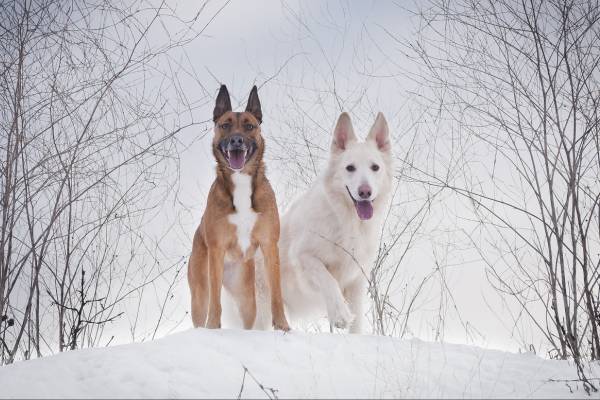

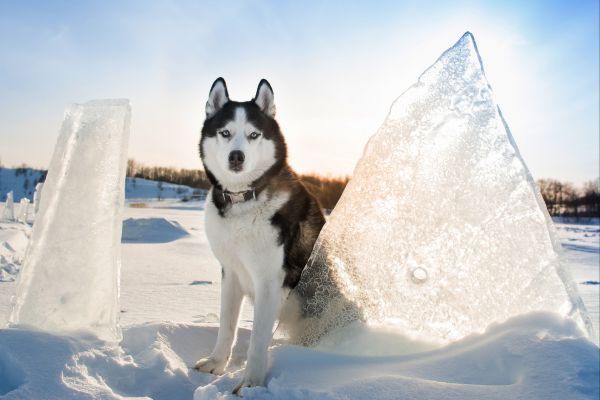
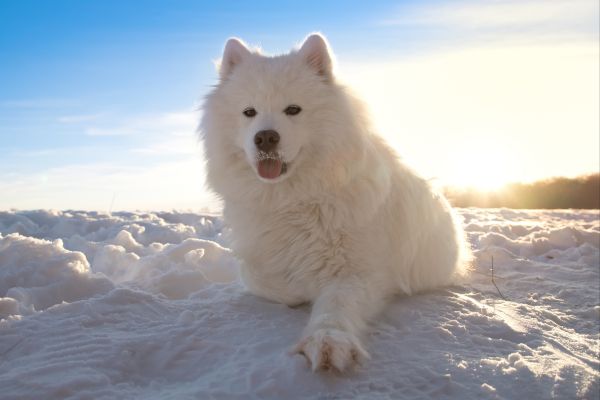
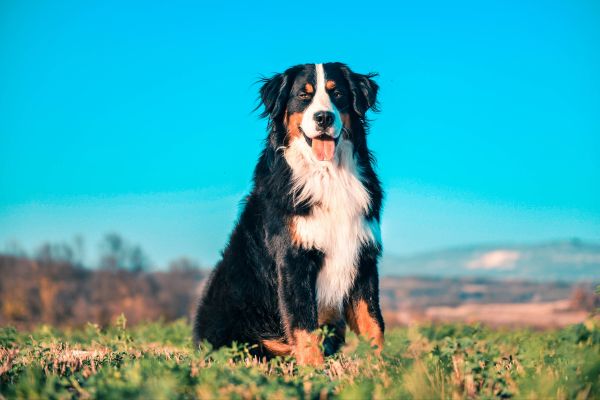
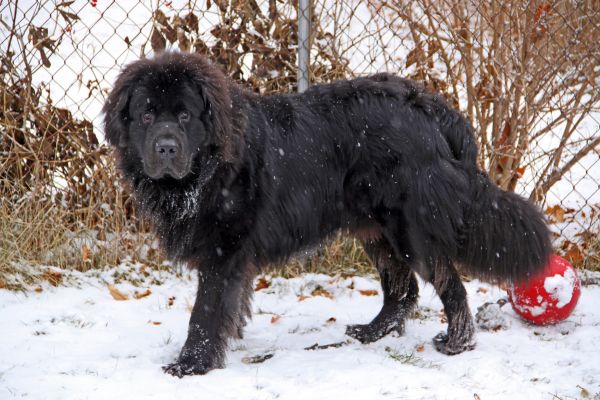
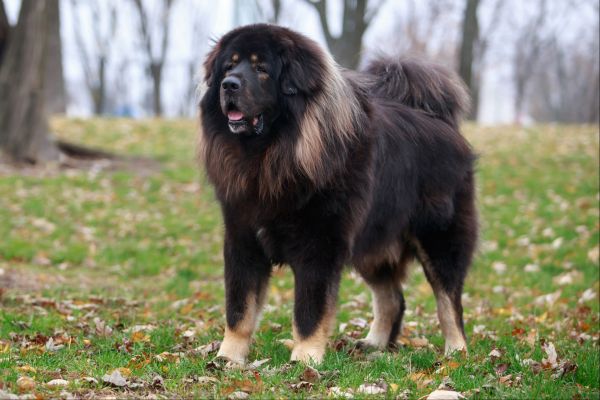
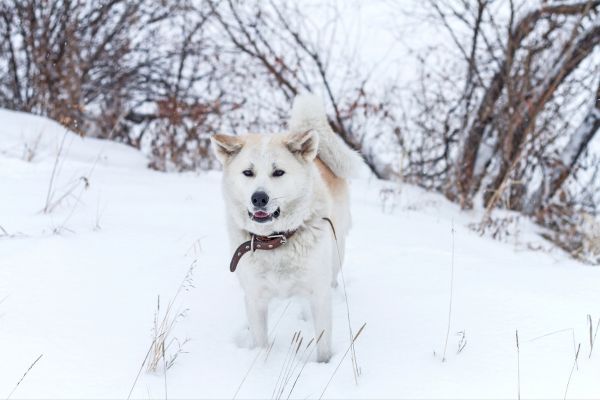
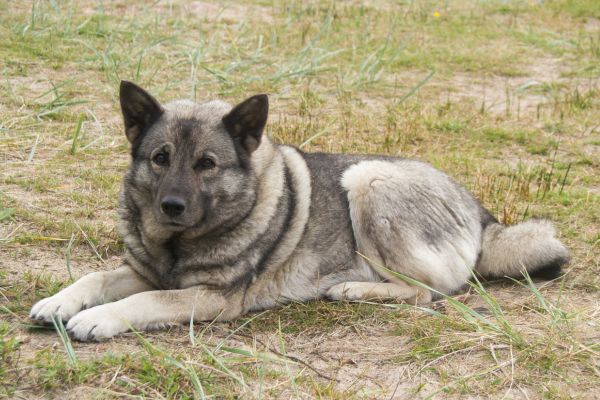

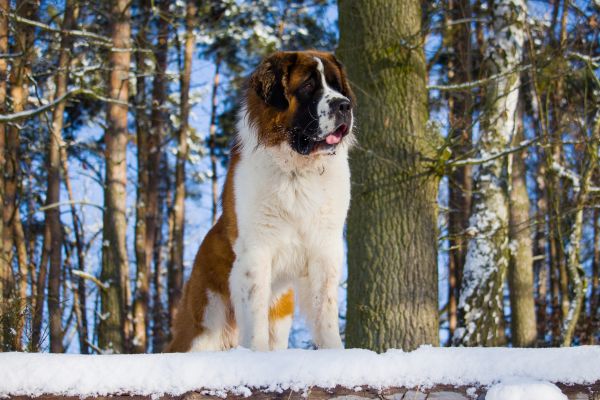
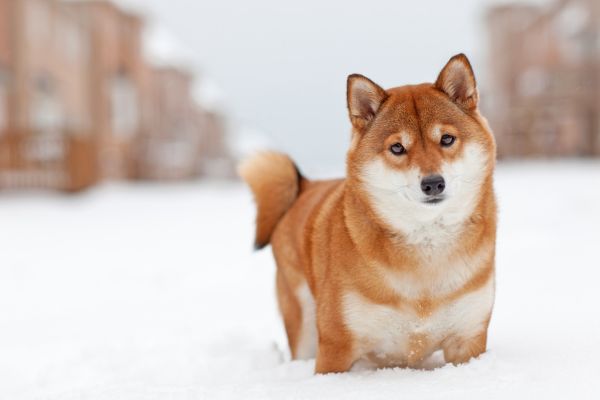
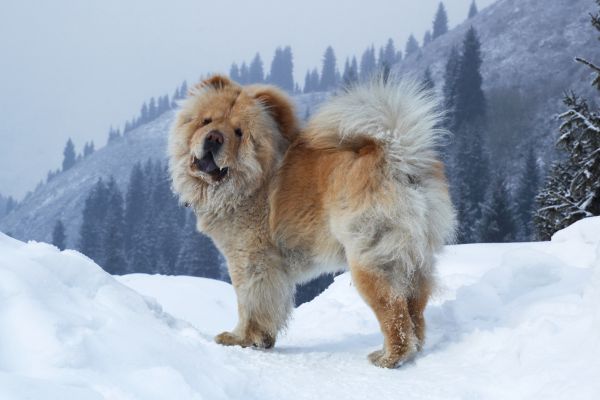
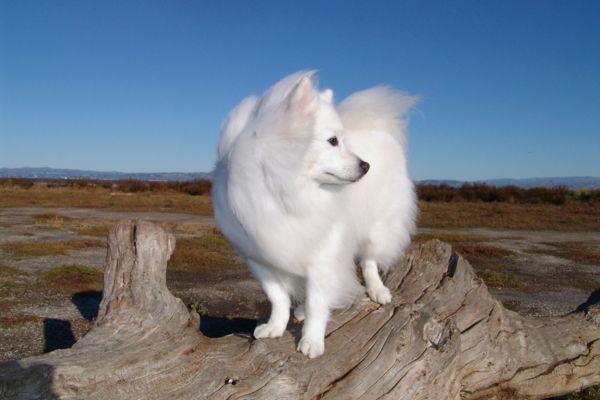
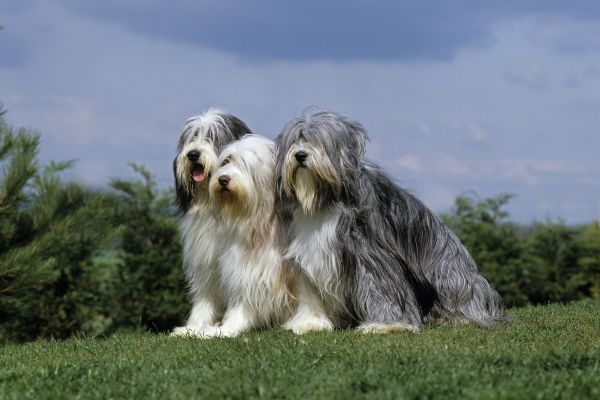
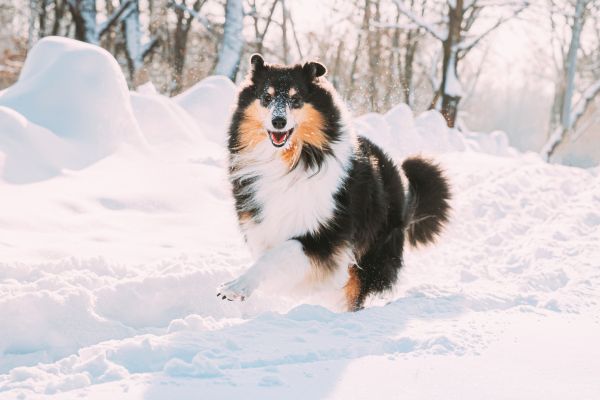
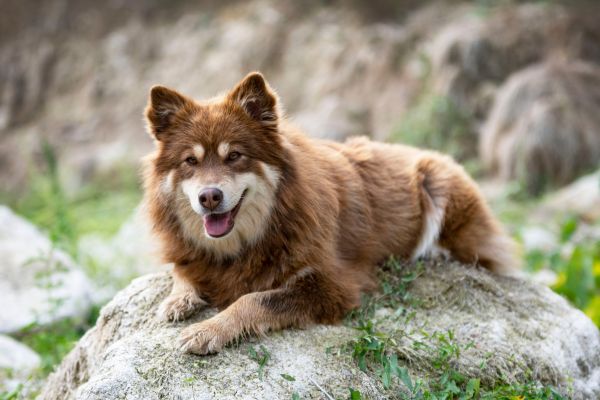
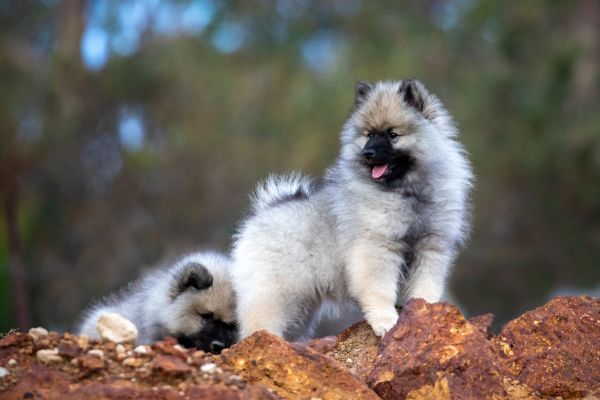
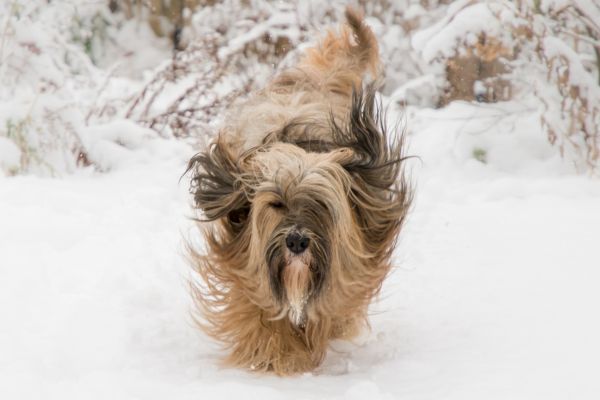

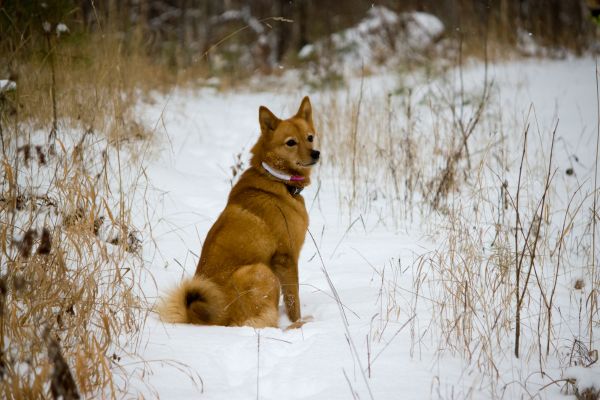
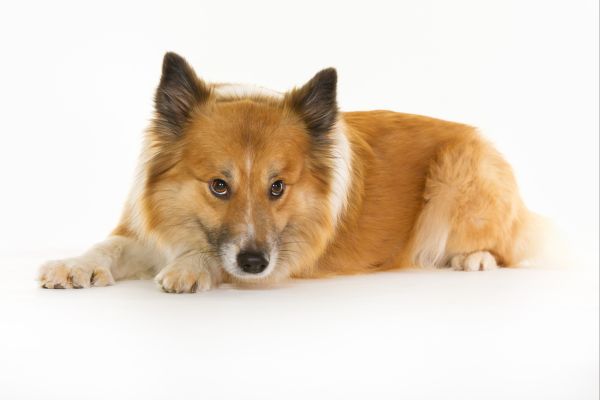
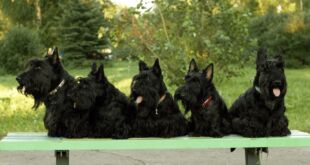
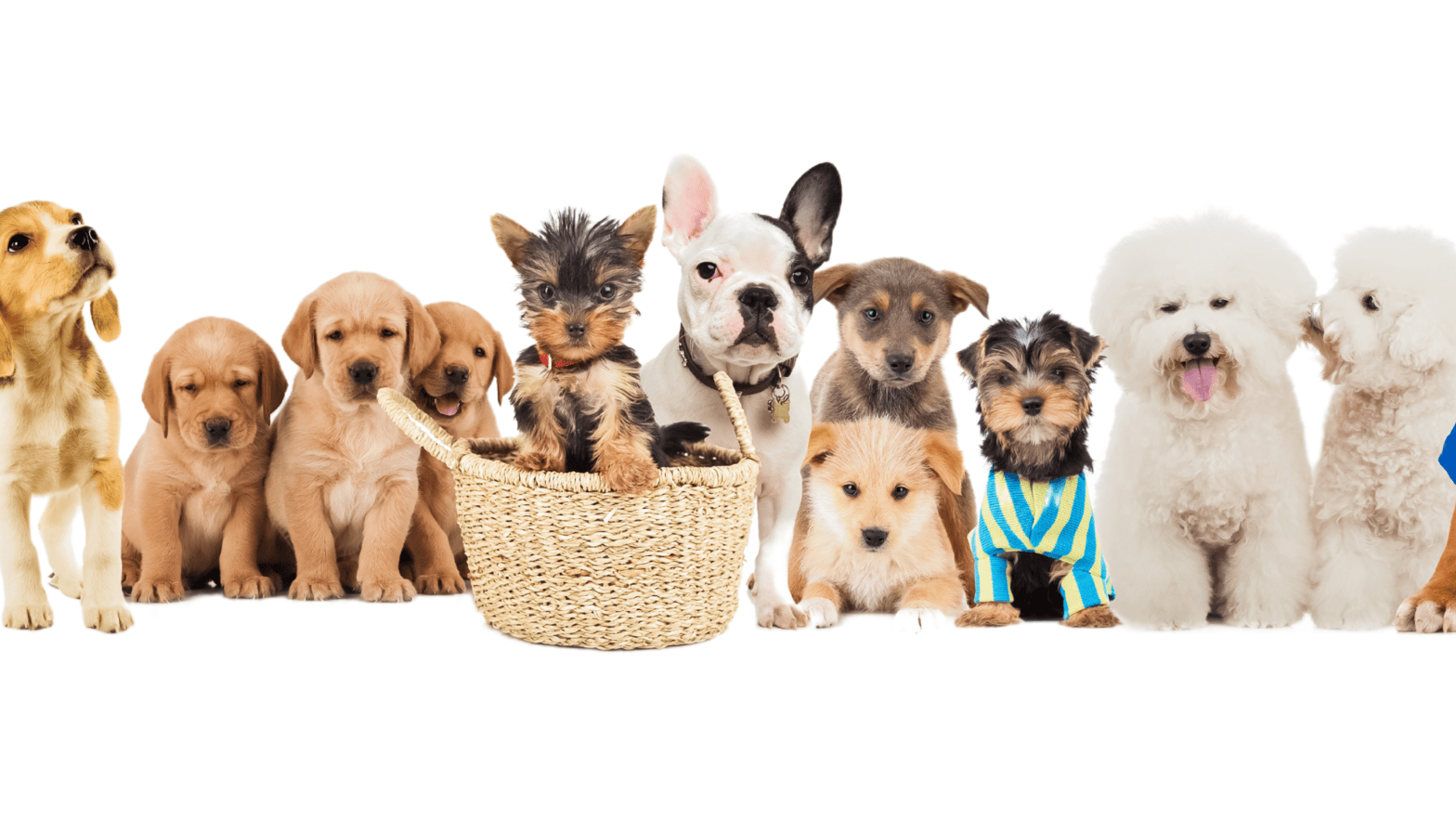













 in Chandigarh, India.
in Chandigarh, India. 
